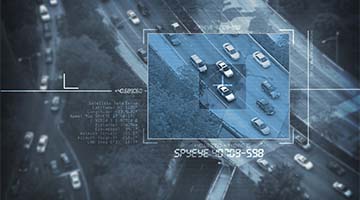Why study this course with LJMU?
- Accredited by the British Psychological Society (BPS)
- Access to our innovative Crime Scene Suite facilities for practical scenario-based learning
- Practical exercises and worked-based learning at the renowned Emergency Services Training Centre in Birkenhead (off-campus)
- Thought-provoking modules both reflect and challenge current policing practices and debates
- Opportunities for graduate membership to the British Psychological Society (BPS)
About your course
This degree will engage you in the key strategies for effective crime scene management and both the process and psychology of investigation.
Designed for those who are seeking a career in policing, the wider law enforcement sector, or associated fields in the criminal justice system. You will be introduced to policing and investigation practice and procedure, and criminal law.
Students have access to the Crime Scene Suite to explore crime scene perspectives and investigate approaches.
You will learn about Cognitive and Biological Psychology, Developmental Psychology, Social Psychology, and Individual Differences and the approaches needed to protect both vulnerable people and the management of offenders.
Students also have the opportunity to combine their studies with service by volunteering as a Special Constable.
You will be taught at Mount Pleasant Campus in the Liverpool Centre for Advanced Policing, a pioneering research centre for interdisciplinary law enforcement, and is licensed by the College of Policing to deliver degree programmes.
Foundation Year
The Foundation Year is ideal if you have the interest and ability to study for a degree, but do not have the qualifications to enter directly onto the Policing, Psychology and Investigations honours degree programme yet. Once you pass the Foundation Year (level 3) you will progress directly onto the first year (level 4) of the honours degree.
Course modules
What you will study on this degree
Further guidance on modules
Modules are designated core or optional in accordance with professional body requirements, as applicable, and LJMU’s Academic Framework Regulations. Whilst you are required to study core modules, optional modules provide you with an element of choice. Their availability may vary and will be subject to meeting minimum student numbers.
Where changes to modules are necessary these will be communicated as appropriate.
Core modules
Preparing for Success: Academic Skills
20 credits
20 credits
This module provides you with the integrated skills required for academic success. You will develop your skills of creating posters, constructing bibliographies, and sourcing relevant materials. Alongside this you will learn to identify and understand academic writing and referencing techniques. The multi-disciplinary syllabus and assessment tasks will enable you to acquire the academic skills needed for successful transition into Level 4 and the completion of the degree.
Investigating Liverpool
20 credits
20 credits
This module provides you with the necessary skills to develop a research project on the Liverpool City region from your particular subject perspective. You will explain academic research methods, write a coherent piece of academic work based on an understanding of Liverpool, and locate relevant research to support your project. The module will help you to develop an independent approach to learning.
Contemporary Issues in Security and Policing
20 credits
20 credits
This module provides you with the opportunity to understand contemporary issues in security and policing. You will learn to identify contemporary themes in security and policing and how theory can help explain crime. Through your study you will understand the challenges to mainstream security and policing and develop the ability to express key ideas about security and policing in written form.
Contemporary Issues in Criminal Justice
20 credits
20 credits
This module provides you with the opportunity to understand contemporary issues in Criminal Justice. It gives you a foundation-level knowledge of how Criminal Justice works in 21st-century England and Wales.
Crime, Justice and Diversity
20 credits
20 credits
This module aims to raise your awareness of the different social factors which can impact on how crime is committed and against whom. The module also builds knowledge of the impact of social factors on crime, victimisation and criminal justice.
Society, Status and Social Policy
20 credits
20 credits
This module provides a sociological context for students to understand the key contemporary social issues affecting the UK.
Core modules
Introduction to Policing and Investigation
20 credits
20 credits
This module aims to help you understand key theories and concepts relevant to policing and the wider criminal justice system by examining the chronological development of policing and other institutions within the system, landmark events and their inter-relationship and relevance.
Practice, Procedure and the Criminal Law 1
20 credits
20 credits
This module aims to introduce you to the role, responsibilities and powers of the police in differing societal and operational environments. The module provides you with a critical introduction to the foundations of criminal law and the criminal justice system. You will identify the key ingredients of a criminal offence, the varying liability of third parties, and common defences prescribed by criminal law, highlighting the importance of police integrity and the role played by police officers in the successful application of criminal law sanctions.
Research Methods and Statistics in Psychology 1: Relationships and Associations
10 credits
10 credits
This module will introduce the tools needed for carrying out a literature search. It will provide you with a practical introduction on how to design an experiment, collect data in an ethical manner, perform statistical analysis and write up findings in a manner consistent with published material.
Introduction to Developmental Psychology and Individual Differences
20 credits
20 credits
The aim of this module is to present a range of topics in developmental psychology and individual differences research. You will be introduced to methods applied to understanding key issues in developmental psychology and individual differences research to enable you to consult and summarise appropriate sources to explain key issues.
Research Methods and Statistics in Psychology 2: Testing for Differences
10 credits
10 credits
This module will introduce the tools needed for carrying out a literature search. It will provide you with a practical introduction on how to design an experiment, collect data in an ethical manner, perform statistical analysis and write up findings in a manner consistent with published material. Building on from Research Methods and Statistics in Psychology 1: Relationships and Associations, you will learn more complex statistical tests.
Introduction to Biological and Cognitive Psychology
20 credits
20 credits
This module introduces you to biological and cognitive psychology. You will examine fundamental issues in cognitive psychology and will consider theoretical models of memory, as well as examining attention and perception. You will be introduced to fundamental issues in biological psychology.
Skills for Success in Policing and Forensic Psychology
20 credits
20 credits
This module enables you to develop your academic skills in writing and critical analysis. It will also enable you to develop your awareness of sources of information and presenting information using a variety of media.
Core modules
Policing Communities
20 credits
20 credits
This module aims to develop your understanding of the concept of equality and diversity. It provides you with an opportunity to critically explore factors which have come to inform policing environments and practices, and to reflexively acknowledge how personal behaviours can support the promotion of the principles of equality and diversity within the workplace and the wider community.
Practice, Procedure and the Criminal Law 2
20 credits
20 credits
The module aims to introduce you to aspects of the criminal law and police powers. At the end of the module, you will be able to identify and critically appraise the extent of these laws and powers, alongside exploring relevant legislation, policy and practice guidance.
Research Methods and Statistics in Psychology 4: Advanced Quantitative Research Methods
20 credits
20 credits
This module enables you to examine the use of advanced tests of differences and relationships in psychological research. You will develop an understanding of factorial analysis of variance (ANOVA), multivariate analysis of variance (MANOVA), simple regression and multiple regression.
Cognitive and Biological Psychology
20 credits
20 credits
This module covers key topics in the area of cognitive and biological psychology. This module builds on the biological and cognitive psychology materials introduced in level 4. You will explore current research relating to biological underpinnings that account for commonalities and individual differences in vision, touch, sleep, motivation, learning and consciousness.
Developmental Psychology, Social Psychology, and Individual Differences
20 credits
20 credits
In this module you will explore psychological development through the life span, covering key areas of development such as cognitive development, identity development and developmental disorders. The module will cover key concepts from individual differences research: intelligence, gender commonalities and differences, and personality and subjective wellbeing. You will also gain an understanding of social psychological concepts such as interpersonal relationships, group processes and intergroup relations.
Psychology of Investigation
20 credits
20 credits
This module aims to help students understand how an understanding of Psychology can support them when conducting interviews in relation to Qualitative methodology.
Optional Modules
Study Year Abroad - Policing, Psychology and Investigations
120 credits
120 credits
The aim is to provide students with an additional year of study at an approved overseas partner that will complement their programme at LJMU. This is an additional year of full time study at an approved higher education institution.. the modules to be studied must be agreed in advance, and must be appropriate for the student's programme of study. Assuming successful completion of the year, mark bearing credit will be awarded by the University Recognition Group. the grade conversion scale to be used will be made available in advance of the year abroad.
Core modules
Approaches to protecting vulnerable people and the management of offenders
20 credits
20 credits
The module aims to develop your understanding of the legislative and policy framework which sets out the parameters of multi-agency working arrangements across the sector. There will be an opportunity for you to work across disciplinary boundaries and gain experience through work related learning using 'real life' case studies.
Forensic and Investigative Psychology
20 credits
20 credits
This module aims to allow you to critically evaluate and apply psychological theories and knowledge in relation to real-world forensic problems. You will work in cross-disciplinary groups to critically explore and evaluate a range of potential solutions to real-world problems.
Research Project - Policing, Psychology and Investigations
40 credits
40 credits
The module aims to enable you to develop a detailed knowledge of your identified field and through this knowledge build a critical understanding of relevant policy and procedural guidance as it is applied in practice
Optional Modules
Comparative Studies in Policing
20 credits
20 credits
The aim of this module is to provide you with the opportunity to conduct a focused piece of independent work in an international context on an area related to the Policing programme, and to encourage you to monitor and reflect critically on your own learning.
Policing, Security and Risk
20 credits
20 credits
This module aims to provide you with critical theoretical, empirical, policy and practical understanding of policing and the security industry. You will gain qualitative skills, writing skills and presentation skills to support your understanding of policing, security and risk realities.
Investigating Serious and Complex Cases
20 credits
20 credits
The module aims to develop your understanding of the legislative and policy framework which sets out the parameters for the investigation of criminal offences. You will be provided with the opportunity to demonstrate and explain investigative procedures through the use of case studies and crime scene practicals.
Application of Intelligence to Policing
20 credits
20 credits
This programme will provide you with a comprehensive understanding of the role, uses and application of intelligence within contemporary policing and partner agencies. You will also develop an understanding of how intelligence can be ethically collected, collated, evaluated, managed and analysed. This will also include the impact of the National Intelligence Model within policing and the wider criminal justice arena.
Psychopharmacology and Addictive Behaviour
10 credits
10 credits
This module will introduce you to popular drugs of abuse, their mechanisms of action and their effects. You will learn how the effects of drugs can be harmful and are related to many factors including purity, dose and route of administration.
Face Perception: Processes and Disorders
10 credits
10 credits
The aim of this module is to introduce you to theory and research relating to the processes of attending to, categorising and recognising human faces. You will also be able to examine the forensic applications of research in face perception.
Social Cognition
10 credits
10 credits
The aim of this module is to introduce you to theory and research concerning social cognition and to analyse and evaluate key models and theories within the field of social cognition. You will also be able to explore contemporary applied issues in social cognition.
Work Psychology
10 credits
10 credits
The module is designed to provide a clear introduction to work psychology by covering contemporary research material to enable students to develop a critical understanding of some of the key themes in work psychology.
Psychology of Sexual Violence
10 credits
10 credits
This module aims to provide criminal justice practitioners of the future a basic understanding of sexual violence and sexual offenders, providing you with an understanding of the different types of sexual violence and an understanding of the psychological theories and motivational explanations which underpin our current understanding of why offenders commit such offences.
Terrorism and Counter Terrorism
20 credits
20 credits
In this module you will examine the key concepts in relation to terrorism and explore a number of key issues including definitions of terrorism, ideologies, typology, group structures, tactics, methods of operation, target selection, state response, use of technologies, funding and media impact. You will also explore the concept of, and delivery of, counter terrorism initiatives with a focus on the measures being adopted within the United Kingdom, drawing on comparative counter-terrorism strategies from the US and Canada.
Professional accreditation/links
Accredited against the requirements for the Graduate Basis for Chartered Membership (GBC) of the British Psychological Society (BPS).
Your Learning Experience
Excellent facilities and learning resources
You will be taught by lecturers and practitioner academics, who are former serving officers of all ranks and roles, from Constable to Chief Constable. All staff are experienced in a wide range of subject areas and specialisms.
Excellent facilities and learning resources
As part of this degree programme, you have access to our innovative Crime Scene Suites on campus and also take part in role-play and scenario tasks at the Emergency Training Centre in Birkenhead.
Throughout the programme there is a student mentoring scheme that supports students in their academic, professional and personal development.
There is also a wider School of Justice Studies Mentoring Programme that works with criminal justice agencies, such as policing, Crown Prosecution Service, prison, probation and youth justice.
Both employers and students should benefit significantly from this programme. Students gain employability skills and insights into specific careers, while employers experience the rewards of mentorship and the opportunity to share their knowledge with enthusiastic students.
Work-related Learning
Work-related learning is incorporated into every level of this programme so that once you graduate you will be equipped with a range of transferable skills and knowledge in analysis and interpretation, presentation, teamwork, initiative and research.
You will be strongly encouraged to become a Special Police Constable, a police volunteer or to volunteer within the criminal justice field throughout your studies so that you can gain practical insight into operational practices, build professional relationships and enhance your employability skills for police and related criminal justice professions after graduation.
Blended learning
We adopt an active blended learning approach, meaning you will experience a combination of face-to-face and online learning during your time at LJMU. This enables you to experience a rich and diverse learning experience and engage fully with your studies. Our approach ensures that you can easily access support from your personal tutor, either by meeting them on-campus or via a video call to suit your needs.
Teaching is delivered through a combination of lectures, online activities, workshops and seminars all of which you are expected to attend. In addition you will be supported to develop your skills relating to independent study and group work. You will need to participate in online activities and discussions using our virtual learning environment, Canvas.
Dedicated personal tutor, plus study skills support
Each student is allocated a personal tutor whose role is to offer general advice, guidance and support regarding the broader aspects of your studies and university life in general.
Assessment varies depending on the modules you choose, but will usually include a combination of exams and coursework.
Assessment varies depending on the modules you choose, but will usually include a combination of exams and coursework.
Your marks and feedback will be available within 15 working days of submitting a piece of work. That's because we believe that constructive feedback is vital in helping you identify your strengths as well as the areas where you may need to develop further.
Where you will study
Based at the John Foster Building, in the Mount Pleasant Campus, the Crime Scene Suite is an innovative facility that gives students the opportunity to explore crime scene perspectives and investigate approaches.
Career paths
Graduates find themselves working in a variety of policing roles as either police officers or police staff and in various roles in the wider law enforcement and criminal justice sectors. The degree also provides the basis for further study and careers in psychology.
Employability is a core module of the degree, where in your final year you will be encouraged and supported to consider your career path in policing.
For those graduates who wish to apply for police constable roles in England and Wales, this degree would render you eligible to apply for appointment via the Degree Holder Entry Programme (DHEP) route.
Recruitment and appointment is subject to the relevant regulations and requirements of police recruitment and selection processes. This includes medical and fitness testing along with background and security checks. Recruitment and selection processes are rigorous and may vary between forces.
Candidates applying to join a police constabulary must also undertake a series of assessments including National Recruitment processes and Force vetting. Guidance on recruitment can be found on the College of Policing website.
For graduates who seek careers outside of police constable roles, may find themselves working in:
- Border Force Control
- National Crime Agency
- Police Staff - Researchers, Analysts or Advisors
Student Futures - Careers, Employability and Enterprise Service
A wide range of opportunities and support is available to you, within and beyond your course, to ensure our students experience a transformation in their career trajectory. Every undergraduate curriculum includes Future Focus during Level 4, an e-learning resource and workshop designed to help you to develop your talents, passion and purpose.
Every student has access to Careers Zone 24/7, LJMU's suite of online Apps, resources and jobs board via the LJMU Student Futures website.
Tuition fees and funding
- Full-time per year:
- £9,535
- Placement year:
- £1,905
The University reserves the right to increase tuition fees in accordance with any changes to the maximum allowable fees set by the UK Parliament. In the event of such a change, any fee increase will be subject to a maximum cap of 10% of the total course cost as originally stated at the time of your offer.
The fees quoted above cover registration, tuition, supervision, assessment and examinations as well as:
- library membership with access to printed, multimedia and digital resources
- access to programme-appropriate software
- library and student IT support
- free on-campus wifi via eduroam
Additional costs
Although not all of the following are compulsory/relevant, you should keep in mind the costs of:
- accommodation and living expenditure
- books (should you wish to have your own copies)
- printing, photocopying and stationery
- PC/laptop (should you prefer to purchase your own for independent study and online learning activities)
- mobile phone/tablet (to access online services)
- field trips (travel and activity costs)
- placements (travel expenses and living costs)
- student visas (international students only)
- study abroad opportunities (travel costs, accommodation, visas and immunisations)
- academic conferences (travel costs)
- professional-body membership
- graduation (gown hire etc)
Funding
There are many ways to fund study for home and international students. From loans to International Scholarships and subject-specific funding, you'll find all of the information you need on our specialist funding pages.
- Full-time per year:
- £17,750
- Placement year:
- £3,830
International Scholarships and payment plans
Liverpool John Moores University is committed to supporting international students by providing a range of scholarships and flexible payment plans to help students manage their tuition fees.
Scholarships
LJMU provides a variety of scholarships to support international students. Scholarships are available to self-funded students who have accepted their offer and met all the conditions outlined in their offer letter. Students must also demonstrate that they can cover living costs, travel, and other expenses associated to studying at the university. Postgraduate scholarships include tuition fee reductions and are often offered in partnership with external funding organisations.
All self-funded international students are eligible for an automatic scholarship worth up to £4,000. For more details and to view our full list of scholarships, visit the international scholarship webpages.
Deposit
All students must pay a £5,000 deposit before they can receive their CAS letter.
For more information view our deposit page.
Tuition Fee Payment Plan
After paying their £5,000 deposit, students have the option to pay their fees in full or in three equal instalments minus any internal scholarships and discounts. There are two payment options available for international students. You can either pay your tuition fees in full before enrolment or opt for a payment plan. With the payment plan, you can pay your fees in three instalments after making your £5,000 deposit. The first instalment is due before enrolment.
All payments should be made through Flywire. Full details can be found in the How to Pay Guide.
Early Bird Tuition Fee discount
We are excited to introduce a £500 Early Payment Discount to all self-funded international students. Eligible self-funded students who pay their fees by the required deadlines will get a discount which will be automatically deducted from the 1st year of tuition fees.
To see the required deadlines please visit the webpage
Entry requirements
Please choose your qualifications below to view requirements
Grades/points required from qualifications: 72
Work out how many UCAS points your qualifications are worth by visiting the UCAS Tariff Calculator.
Qualification requirements
GCSEs and equivalents
Grade 4/C in English Language and Mathematics or an equivalent qualification. Equivalences accepted:
- Key Skills Level 2 in English/Communication and Mathematic/Application of Number
- Functional Skills in English and Mathematics
- Essential Skills Level 2 in Communication and Application of Number
- Skills for Life Level 2 in English and Numeracy
- Higher Diploma in English/Maths
A levels
DDD
Minimum Number of A Levels: 2
Maximum AS UCAS points: 20
BTECs
Extended Diploma : MMP
Access awards
72 UCAS points
International Baccalaureate
Acceptable on its own and combined with other qualifications
OCR Cambridge Technical
Extended Diploma: MMP
Irish awards
72 UCAS Tariff points to include a minimum of 3 Irish Highers
T levels
72 UCAS points from a related subject area
Further information
- DBS, Occupational Health requirements
-
Reduced offer scheme
As part of LJMU’s commitment to widening access we offer eligible students entry to their chosen course at a reduced threshold between 8 and 16 UCAS points. This applies if you are a student who has experience of living in local authority care or if you have participated in one of LJMU’s sustained outreach programmes such as a summer university. Please contact course enquiries for further details.
International requirements
IELTS
Further information
- DBS, Occupational Health requirements
Please Note: All international qualifications are subject to a qualification equivalency check.
How to apply
Securing your place at LJMU
UCAS is the official application route for our full-time undergraduate courses. Further information on the UCAS application process can be found here https://www.ljmu.ac.uk/study/undergraduate-students/how-to-apply.
Your university life
From accommodation and academic support to clubs and societies. Find out what LJMU has to offer.
Related Links
Talk to our students
Connect with a current LJMU student for advice and guidance on university life, courses and more.
See what our students are saying
At LJMU we want you to know you're making the right choice by studying with us. You can see what our students are saying about their experience with us through their reviews on the following websites:
Related Links
News and views
Browse through the latest news and stories from the university










The university reserves the right to withdraw or make alterations to a course and facilities if necessary; this may be because such changes are deemed to be beneficial to students, are minor in nature and unlikely to impact negatively upon students or become necessary due to circumstances beyond the control of the university. Where this does happen, the university operates a policy of consultation, advice and support to all enrolled students affected by the proposed change to their course or module.
Further information on the terms and conditions of any offer made, our admissions policy and the complaints and appeals process.
















